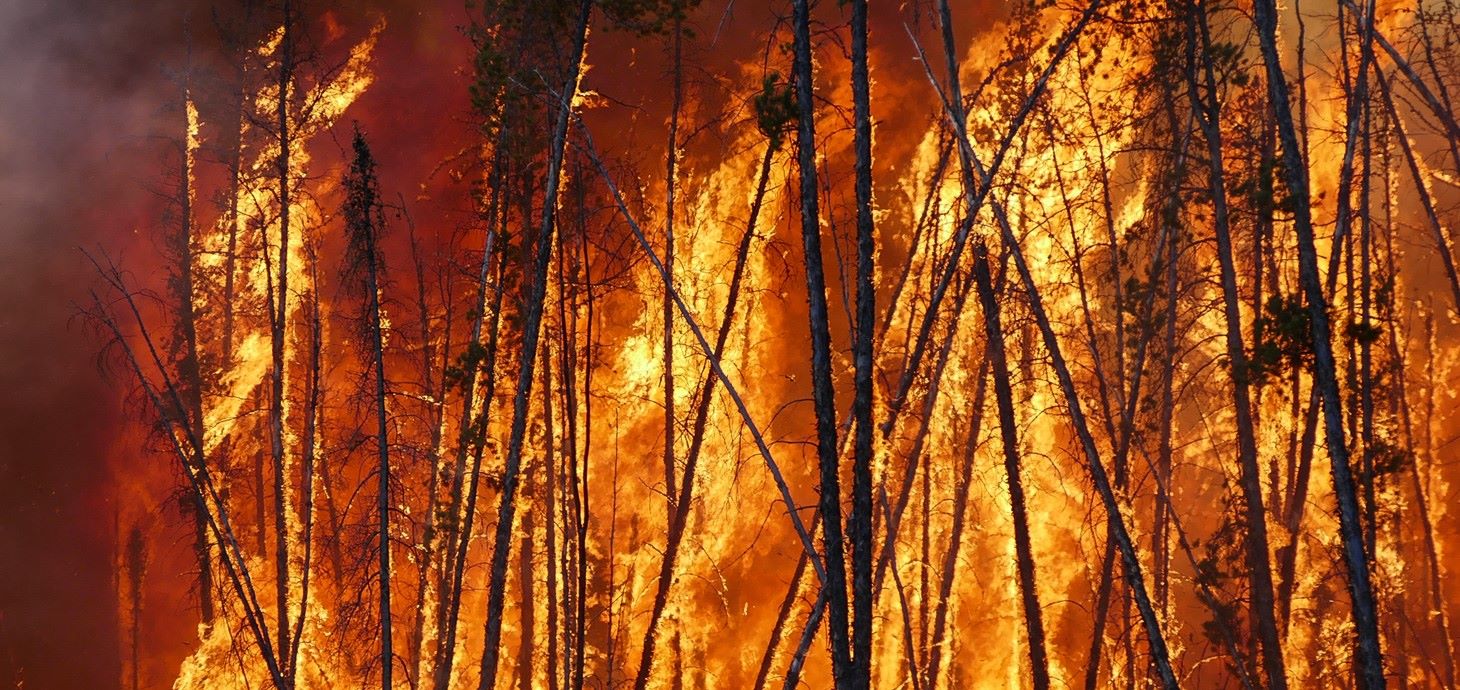
A major new study co-authored by Professor Stefan Doerr, Director of the Centre for Wildfire Research, at Swansea University reveals that carbon dioxide (CO2) emissions from forest fires have surged by 60 per cent globally since 2001, and almost tripled in some parts of the northern boreal forests.
The study, led by Dr Matthew Jones, previously a research officer at Swansea now at the Tyndall Centre for Climate Change Research of the University of East Anglia, (UEA) has been published in Science. It grouped areas of the world into ‘pyromes’ - regions where forest fire patterns are driven by similar environmental and climatic controls - enabling a clearer understanding of the different factors driving recent changes in fire activity.
It is amongst the first studies globally to examine the differences between forest and non-forest fires, and shows that in one of the largest pyromes, which spans boreal forests in Eurasia and North America, fire emissions nearly tripled between 2001 and 2023.
Increased emissions amounted to an additional half a billion tonnes of CO2 per year were linked to a rise in fire-favourable weather, such as the hot-dry conditions seen during heatwaves and droughts, as well as increased rates of forest growth creating more vegetation fuels. Both trends are promoted by rapid warming in the high northern latitudes, which is happening twice as fast as the global average.
Professor Doerr said: “While we found an encouraging decline in fires and associated emissions from tropical pyromes, linked to reduced deforestation fires in moist tropical forests, this is unfortunately outweighed by the rise in emissions from northern boreal forest fires.”
The study reveals a worrying increase in not only the extent of forest wildfires over the past two decades, but also their severity. The carbon combustion rate, a measure of fire severity based on how much carbon is emitted per unit of area burned, increased by almost 50 per cent across forests globally between 2001 and 2023.
The work involved an international team of scientists - from the UK, Netherlands, US, Brazil, and Spain - who warn that further expansion of forest fires can only be averted if the primary causes of climate change, such as fossil fuel emissions, are tackled.
Dr Matthew Jones said: “Our findings underscore the urgency for policymakers and environmental agencies to prioritize climate mitigation and proactive forest management strategies to protect these critical ecosystems from the accelerating threat of wildfires.”
Forests are of worldwide importance for carbon storage, with their growth helping to remove CO2 from the atmosphere and reduce rates of global warming. They also play a crucial role in meeting international climate targets, with reforestation and afforestation schemes being implemented to remove carbon from the atmosphere and offset human CO2 emissions from hard-to-abate sectors such as aviation and certain industries.
The authors say the study debunks the narrative that falling overall annual area burned by fire globally equates to falling wildfire impacts. It shows that fires are increasingly happening where they present the greatest threat to people and to vital carbon stores.
The work was supported by funders including the UK Natural Environment Research Council (NERC), European Commission Horizon 2020 programme, and European Space Agency.
